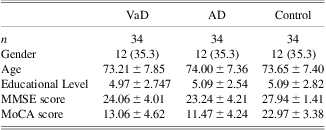

The MoCA is an 11-item test that takes 10 to 15 minutes to administer (Nasreddine et al., 2005). People with dementia are 25 times more likely to name fewer than 10 animals in one minute.Tell patients that the test is not a race and that they will have one minute to complete the test from the point that they say the first word.This word-generation test asks patients to name as many four-legged animals as they can in one minute.1 or 2 out of 3 on word recall: normal clock-drawing test = no dementia abnormal clock-drawing test = dementia.3 out of 3 on delayed recall indicates normal 0 out of 3 indicates likely dementia.Recommended for detection and monitoring, including delirium.Cons: does not test memory or language abilities.Pros: not influenced by age or education easy, very quick and acceptable to most patients some measure of visuospatial and executive function.


The scoring of the clock is similar to the Mini-Cog scoring described on page 229. Use the clock-drawing test (see below) as a distracter for the three-word recall.I want you to repeat them back to me.” Explain that you will later ask the patient to recall the words. Tell the patient: “I am going to say three words.The Mini-Cog combines the delayed three-word recall test and the clock-drawing test (Borson et al., 2000). The Mini-Cog is a first-line cognitive screen for primary care, although it has not been evaluated as extensively as the MMSE or the Montreal Cognitive Assessment. Cons: takes longer than other similar tests tests a limited number of cognitive domains (relatively less emphasis on memory and executive functioning) often not sensitive to early cognitive change.Pros: familiar and takes a relatively short time to administer.Test items that are most sensitive to detection: orientation to date (especially year), delayed word recall and intersecting pentagons.Performance affected by age and education.Scoring: suggested cut-off of 24 or less out of 30 should raise concerns about possible dementia.The Mini-Mental State Examination (MMSE) is an 11-item test that takes five to 10 minutes to administer (Folstein et al., 1975). Quick Cognitive Screening Tests Mini-Mental State Examination All patients suspected of having dementia should have a physical examination, including a screening neurological examination and review of medications, as a part of the evaluation. Screening includes office-based assessments of cognitive function, as well as laboratory testing and neuroimaging. Evaluating Cognitive Impairment and Dementia Text adapted from "The patient with dementia" in Psychiatry in primary care by Kenneth Le Clair, Dallas Seitz and Julia Kirkham.


 0 kommentar(er)
0 kommentar(er)
